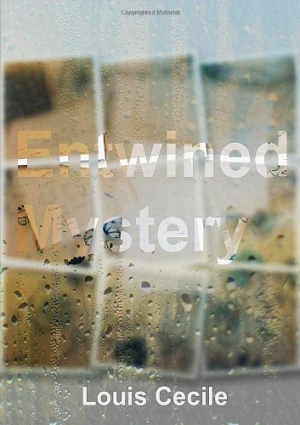Entwined Mystery
In his second book of poetry, Louis Cecile intertwines four primary sets of poems that investigate sight—how humans see and are seen—as well as that which is impossible to see. Cecile approaches his topics—pornography, online dating, the supernatural, and racially charged language—concerned with the public, the private, and the unknowable. His language can be dense and some of his references obscure, but the poet’s questioning acts as an engine, exciting readers to connect the mysteries of Cecile’s inquiries.
The first section of the book consists of two parts, “Eternal” and “Fear of Reality,” in which Cecile engages issues of race, from a grandfather warning his grandchild, “No more black babies,” to being cast as the “Token Nigga.” These poems post an emotional stake, and while the language tends toward prose, the work pushes readers to think about prejudice and complicity. “Fear of Reality” contains the most obscure pieces in the book. The poet references a number of demons, a fall from grace, a disturbed and prolonged pre-sleep hallucination, and a suicide, all of which are being watched by both the good and the evil characters of the dreamscape.
This obsession with watching and being watched appears in the next section, “Obsessive Excitement,” also carved into three acts. Here a woman becomes a porn star and gains an obsessed fan. Cecile alternates between the male and female voice, and sex becomes salvation, power, commodity, and connection. The power of vision, of being seen, again comes to the forefront as Cecile asks readers the effect and cause of exhibitionism and voyeurism. These poems feature a blunt narrative voice and adult language and cover a broad spectrum of sexual situations, but the poems are not gratuitous in their use of sex. Cecile is asking questions about the nature of sexuality in an increasingly commodified and visual society.
He deals with the online world in the next section, where he charts, using male and female voices, an Internet romance and its resulting virtual marriage. The penultimate section imagines a zealot who takes a young man captive and attempts to convert him, causing the man to take revenge against the “teacher.” In these sections, Cecile wonders if intimacy is possible online or in a relationship based on Stockholm syndrome. Are the emotions in the cyberworld real? Can the intimacy between a captor and captive create a relationship of lasting devotion?
Cecile’s emphasis on vision and understanding is compelling, but his use of language is not quite up to the depth of his thoughts. Careful paring of extraneous language, more lyric imagery, and tighter poem selection would improve his efforts. Still, the content of Entwined Mystery and the questions the poet asks will provide many readers with internal dialogue long after the reading is complete.
Reviewed by
Camille-Yvette Welsch
Disclosure: This article is not an endorsement, but a review. The publisher of this book provided free copies of the book and paid a small fee to have their book reviewed by a professional reviewer. Foreword Reviews and Clarion Reviews make no guarantee that the publisher will receive a positive review. Foreword Magazine, Inc. is disclosing this in accordance with the Federal Trade Commission’s 16 CFR, Part 255.

